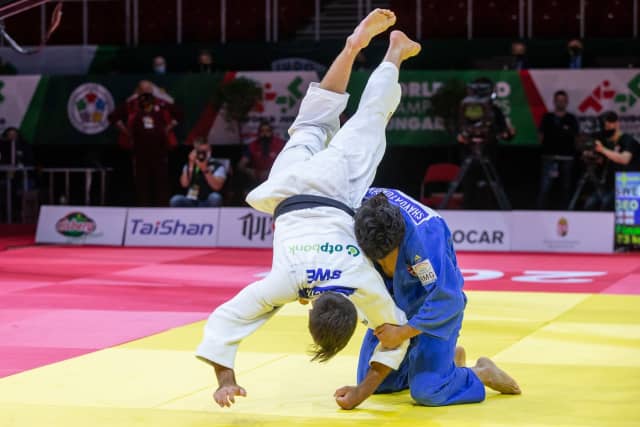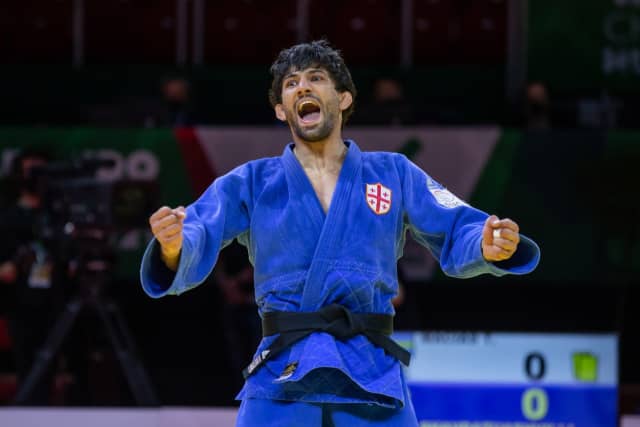The phrase became famous in the 80s: ‘ninety minutes in the Santiago Bernabeú stadium are very long.’ Well, 4 minutes on a mat with Teddy Riner can seem like an eternity. The first eye contact with the Frenchman is often disheartening for his opponents; over two metres tall and 130 kilos of muscle and an even bigger resumé. Teddy Riner will participate in his fourth Olympic Games with a mission available to no one else: winning his third consecutive gold medal since 2012. Beijing 2008 was a bronze with a bitter taste because he was looking for the title. In London 2012 he built the foundations of his own legend with a golden victory because, beyond his titles, the Frenchman has set the pace for a category that has evolved based on him and not the other way around. In the last ten years all the strategies have been worked out to defeat the French judoka and only two have worked; that’s two defeats in ten years.
Riner kept the golden patch in Rio and took a long vacation. The rest is known, from Covid, an altered preparation, the reappearance with an incontestable victory in Doha and nothing else. His whereabouts and fitness are unknown variables. What is known and that is why all the heavyweights are nervous, is that in Tokyo he will not be seeded. Riner doesn't care, he just wanted to qualify but the others are not happy, especially the top of the world rankings and we can understand why. Imagine what it means to fight for five years to be among the first, in order to obtain a good draw that allows you to face the Olympic tournament with a minimum serenity in the first rounds and finally have breakfast with Riner in the first round. It is not a dish of taste, so the draw in the heavy category will determine the future of some favourites very soon. Others, those who will avoid the Frenchman, will breathe a sigh of relief. Sooner or later it will be necessary to face him like the rest because it is not possible to become an Olympic champion without defeating the best but it's true that the Frenchman continues to set the cadence and his presence changes everything.
There is another judoka who is also a champion in the longevity race, because one thing is to participate in the Olympic Games for the third or fourth time and another, very different, is to do it as a favourite.
Lasha Shavdatuashvili has known Riner since London 2012. We don't know if they exchanged words at the time but the Georgian also won. He's the other dean to be in Tokyo and he's coming like a rocket. At the World Judo Championships in June, Shavdatuashvili conquered his last major title to win, making him the best judoka in the history of his country. Perhaps his is a more complicated mission because, for five years, the –73kg category has been dominated by Ono Shohei. Everyone raves about the Japanese athlete, a true prodigy of judo who has not lost a fight for centuries. There is a but, as with Riner, because Ono has also disappeared from the map since March 2020. Like Riner, Ono will not be seeded, but in this category there are more nerves due to the recent world title of Shavdatuashvili. The Georgian will be the second seed and everyone has seen that he has prepared well and they also know he is well versed in how to win an Olympic title.
Three Olympic cycles are the best learning if you pay attention. Riner knows that everyone is waiting for him and Shavdatuashvili knows that the medal is possible, of any color. They are the two survivors of the victorious litter of London 2012, two golden grandpas who have the necessary baggage to reach the goal. For all these reasons, experience must be respected, especially when it has their faces.




